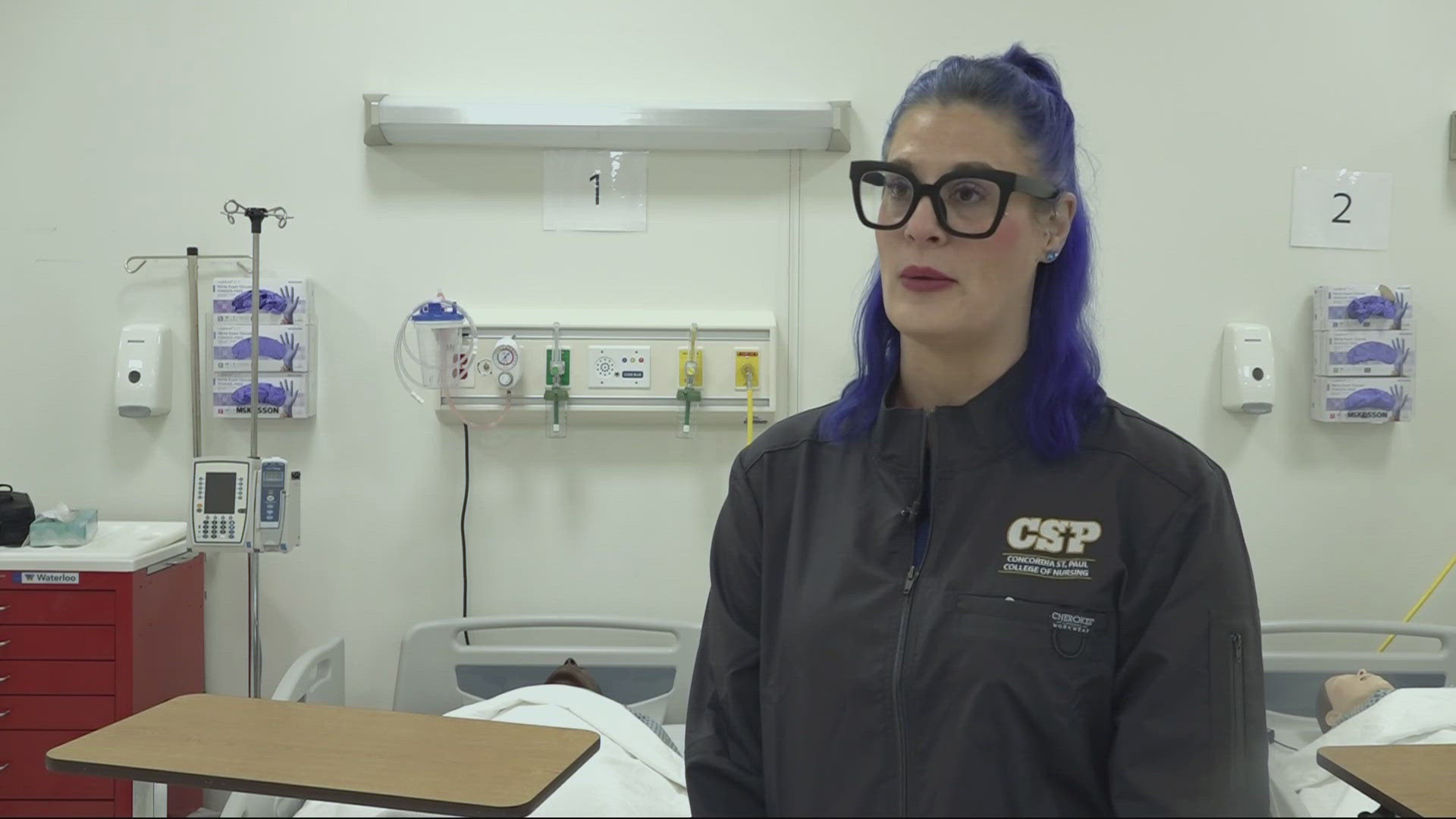PORTLAND, Ore. — Morgan Beaty spent most of her adult life caring for animals as a veterinary technician. When the pandemic hit and her son was diagnosed with Type 1 diabetes, she was encouraged to break into healthcare.
She wouldn’t have been able to make that big career jump without the accelerated nursing program at Concordia University St. Paul.
"I actually used all of my economic stimulus money to go back to school to become a nurse," Beaty said.
Beaty said the university's accelerated 16-month Bachelor of Science nursing program is rigorous, but it provides and even balance of online coursework and in-person lab simulations, a setup that allows non-traditional students like herself a second chance.
"The door to an RN degree is wide, and there is so much on the other side," Beaty said.
According to a study by the Oregon Longitudinal Data Collaborative, Oregon produces the third-fewest nursing graduates per capita across the entire country. Despite the demand, traditional colleges and universities lack the faculty, clinical sites, classroom space or clinical preceptors to serve the number of students interested.
In 2023, U.S. nursing schools turned away over 65,000 qualified applicants. Concordia University St. Paul accepts 80-100 students three times a year into its accelerated program.
"We want to give students access to education," said Dr. Kate Whalen, the ABSN director at Concordia University St. Paul. "Let them come in and become the nurses that they really want to be."

